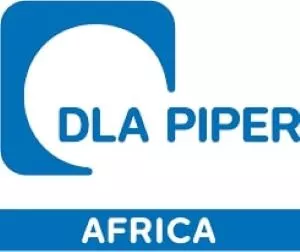On the 26th of October, 2013, I watched the stage play "SARO The Musical". SARO tells the story of four boys that leave their village and go to Lagos in search of good fortune. On the day that I watched the play, the hall was practically filled and I was ushered to a seat at the back of the hall. I was not particularly pleased about this, considering the number of head ties that stood out in front of me like trees. Despite this, I (and the rest of the audience) totally enjoyed the musical. The acting, fantastic music and incredible costumes all combined made it an amazing experience. While watching I could not help but notice the use of phones (and occasional ipads) being used to record parts of the performance.
This got me thinking about plays, shows, concerts etc that I have watched on stages abroad. As you walk into the venues of these events or performances, there are signs plastered boldly and all over saying NO FILMING OR PHOTOGRAPHY PLEASE! As a legal practitioner in the entertainment industry, I understand the legal basis for these signs which are actually also applicable in Nigeria. But really, how many people know and understand the reasons for the NO FILMING OR PHOTOGRAPHS PLEASE and this article briefly looks into this matter.
- The truth of the matter is that performances of actors, musicians, dancers, etc, are an integral part of the creative process in presentations of music, stage shows, musical concerts, plays and films to the public. The skills of the performers are necessary for the enjoyment of these works.
- Around the late 19th Century, new technologies made it possible to record and broadcast performances to the public beyond the control of the performers. Copies of the recorded performances could be reproduced at very low costs and distributed for sale.
- As recorded performances gradually replaced live performances, the security of performers' employments became threatened. In reaction, performers began to agitate for the right to control the exploitation (use in a positive sense) of their performances and the economic justification of the establishment of performers' rights became relevant.
- With time, it became accepted that performers should have legal rights over recordings of their performances and a share in the proceeds from their commercial exploitation.
- The first attempt to protect performers from unauthorized exploitation of their performances was made in the United Kingdom in 1925. However, it was not until the Rome Convention of 1961 that the interest of performers was given real significance. The current regime governing performers' rights internationally can be found in a harmonized reading of the Rome Convention, the World Intellectual Property Organization Performances and Phonograms Treaty and the TRIPS.
The Nigerian Context
Performers' rights are provided for in the Nigerian Copyright Act as neighboring rights (in other territories, they are referred to as "related rights"). They are called neighboring rights because they are developed parallel to copyright.

The term "performer" is not expressly defined in the Nigerian Copyright Act. However, the Act contains a list of what constitutes "performance" which includes dramatic performances (including a dance or mime), musical performances and a reading of a literary act or any similar presentation which is a live performance.
The Act gives performers the legal right to control the recording, broadcasting, reproduction and adaption of their performances for a period of 50 years from the end of the year their first performances took place.
These days, with the mere click of a button, you can record crisp footage from concerts or plays for that matter and within minutes upload them on the internet for all to watch. A few examples are Beyonce's concert in London in April 2013 and clips from Felabration 2013 which are all over the internet. However, under the Copyright Act, if you click that button and record a live performance without the consent of the performer, broadcast or sell it without permission, you are actually infringing the legal right of the performer. Even when the recording is required for your private use, consent is still required (although in such a case, the performer should not unreasonably withhold his or her consent). It is also an infringement to import an infringing recording of a performance into Nigeria for commercial purposes.
Despite these legal provisions, people still record performances at concerts and upload them to the internet. In reality, artists are not likely to pursue these acts as it is time consuming and quite frankly, the circulation on the internet could be construed as additional publicity for the artist. However, if you decide to sell the concert footage, you are likely to get a reaction from the artist's lawyer.
In addition to the legal rights discussed above (which are civil in nature), the Copyright Act creates criminal liability for infringement of performers' rights and imposes penalties such as fines (for individuals and corporate entities) and a term of imprisonment.
Should you ever decide to professionally film a performance, it is best to obtain permission before you do so. A few lines on a piece on a piece of paper conveying permission, the signature of the performer and of course a date, is all that it takes. Another very important reason for these signs is that the flash and light can distract the performer and cause a serious accident. The Cirque du Soleil shows come to mind and under no circumstances can photographs be allowssed. The NO PHOTOGRAPHY OR FILMING PLEASE is strictly enforced at such venues. So please think twice before you whip out your device and click on the record button.
The content of this article is intended to provide a general guide to the subject matter. Specialist advice should be sought about your specific circumstances.

